Farmers in Hurricane Helene’s Path Face Hard Winter – But We Can Help
 Print This Post
Print This Post
By Eddy Labus, NCAT Sustainable Agriculture Specialist
I am sure most of you have seen the pictures and heard about the damage Hurricane Helene caused in the Southern Appalachians. I am still so saddened by the many lives lost and all the property that has been destroyed. The news hasn’t really shown the devastation wreaked on the farms and forests in our area. “It is my personal perspective that this is going to be the most severe environmental disaster in the recorded history of this area. We’ve experienced nothing like this before,” said New River Conservancy Executive Director Andrew Downs. This is due to fuel, pesticides, and sewage that has polluted the streams.
I live outside of Boone, North Carolina, and have driven past many farms and witnessed firsthand the destruction of farmland and forests. I have never seen so much damage. Fields have either been washed away or are covered with debris. Pasture fences have been destroyed or damaged by so many trees falling across them that repairs will be time-consuming and costly. The forests have many downed trees, making it dangerous to even walk through to survey the damage. The downed trees have little value due to the damage caused by the twisting winds.
I want to pass along a story of a good friend of mine who has been farming for 75 years on a farm that has been family land for over 100 years. Gene has dealt with his farm flooding since the 1940s and has lines inside the basement door marking the height of each flood. The last time I saw them, there were six floods marked on that door. The flood of 1940 was the highest mark.
The Saturday after the hurricane hit, I ventured out to survey damage and check on friends and neighbors. I did not know how bad the damage was. It took me three different routes to find a way out, since roads were gone or covered with dirt and downed trees. I had never imagined that Helene would result in so much damage to the area.
I stopped to check on Gene. I will always remember the look of desperation on his face. “There will not be a mark on the basement door this time,” he said. I asked why, and he told me the water was on the main floor of the house, and he didn’t know what he was going to do.
Gene has a small beef farm with 15 cow/calf pairs and raises 1.5 acres of corn and 10 acres of hay to feed them. Cove Creek stream flows through his farm. He has always been the farmer that is in a positive mood, and he loves his cows and the farm.
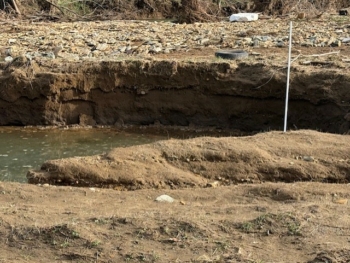
Gulley in Gene’s hay fields. Photo: Eddy Labus, NCAT
I asked him about his cows, and he said he had no idea where they were or if they were still alive. All the fences along the creek were washed away. The barn had taken on several feet of water, which caused major structural damage. The cornfield is covered by one to two feet of dirt and debris. The hay field has a gully over two feet deep that started down the center of the field, and the rest is covered in rocks and debris. I doubt the field will ever be farmed again.
Gene has since sold all the cows—luckily all of them finally made it back to the farm. He was able to sell the cows to a friend who he has been selling calves to for many years. Gene is selling his hay and will try to lease the farm. The barn, which was built by his grandfather, is damaged and repairs will be costly. Other buildings on the farm are beyond repair and will have to be torn down. There has been a steady stream of volunteers and contractors repairing Gene’s house. He told me that it will be spring before he can move back into the house.
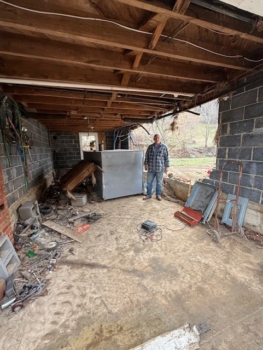
Gene in his barn damaged by Hurricane Helene. Photo: Eddy Labus, NCAT
I know this type of story has played out on many farms in Western North Carolina and Eastern Tennessee. Winter is underway, and people, land, and livestock are still struggling to recover, but I am impressed with the outpouring of assistance and volunteers who are still trying to get lives back to “normal.” Helene certainly will have a lasting impact; it was the event of a lifetime, and everyone who lived through it will always remember the destruction, death, and hardship it caused. I know I will always remember the community support, volunteers, and churches and community centers that rallied to provide shelter, food, generators, livestock feed and supplies, and water.
The road to recovery will be long, and folks in Western North Carolina and Eastern Tennessee will need help for years to come. Farmers who have damage or losses should contact their local USDA Farm Service Agency, their local Extension Office, or the agencies listed below. If you would like to help folks in the affected region, these are some organizations to support:
Farm and Forest Families of Tennessee Disaster Relief Fund
Western North Carolina Communities (WNC Communities)
Blue Ridge Women in Agriculture
North Carolina State University Extension Service
University of Tennessee Extension Service
Appalachian Sustainable Development
Related ATTRA Resources:
Helping Farmers in Financial Crisis
This blog is produced by the National Center for Appropriate Technology through the ATTRA Sustainable Agriculture program, under a cooperative agreement with USDA Rural Development. ATTRA.NCAT.ORG.

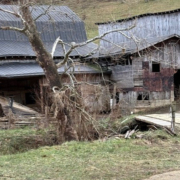
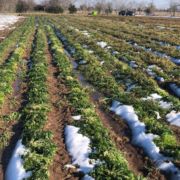
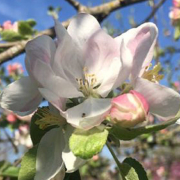

 USDA photo by Lance Cheung
USDA photo by Lance Cheung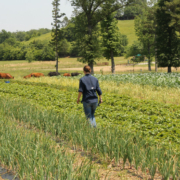
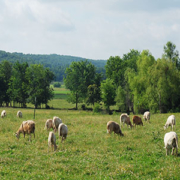

 NCAT
NCAT